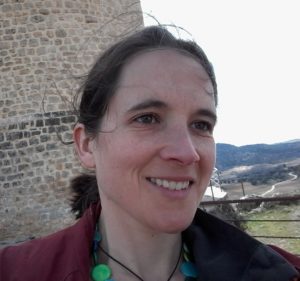 “For people to change, they need to connect,” Professor Pavao said to me on the car journey into UNESP university, Sao Paulo state, Brazil. It was my second day of a one-month study visit to learn about medical education. Professor Pavao was telling me about the event that she had coordinated the previous week to engage healthcare students and university staff on the topic of environmental sustainability. Instead of holding a conference and inviting participants to sit and listen to presentations, or even to sit and discuss situations, Professor Pavao had decided that something more engaging was needed.
“For people to change, they need to connect,” Professor Pavao said to me on the car journey into UNESP university, Sao Paulo state, Brazil. It was my second day of a one-month study visit to learn about medical education. Professor Pavao was telling me about the event that she had coordinated the previous week to engage healthcare students and university staff on the topic of environmental sustainability. Instead of holding a conference and inviting participants to sit and listen to presentations, or even to sit and discuss situations, Professor Pavao had decided that something more engaging was needed.
She held a lunchtime event in the central area of the central administration building, where people could drop in and find out more about environmental sustainability initiatives. She managed to persuade five reluctant students and staff members to join her in what might seem like the unthinkable to a stiff upper lipped English person like myself.
In circle dance, individuals hold hands and move together, connecting not only to each other but to an ancient tradition. The size of the dancing group can ebb and flow as individuals choose to join or leave. Anyone can participate, and the dynamic connections of the group could be a metaphor for the interconnectedness of people that is sometimes forgotten when we become absorbed in the details of a pathological process or an aspect of drug metabolism, for example.
Exchange and learning do not only come from the words that we speak and hear; group activities can stimulate learning on many levels. The circle formation in this dance means that all participants can see each other and each plays an equal role in the dance; there is no hierarchy and no obligation. The tradition offers an insight into the type of formation and participation that we need to address future challenges.
And it’s also fun and compelling. So what began as six people circling around a lobby area became 35 filling it. It was a new approach that brought a community together and could achieve the level of engagement that is necessary to change deep-seated personal and societal priorities and norms. Creating the rapid and large scale changes that environmental change now demands of humanity, not least the medical profession, requires us to take risks.
For future doctors to acquire the personal and professional traits that will serve their patients well, their medical schools must facilitate transformative learning, where students’ perceptions are challenged, emotions engaged, and values shifted. For society to adapt and thrive as new health challenges emerge, requires us to offer individuals and communities fun, accessible, and stimulating alternatives to their usual habits and routines. Interacting on the level of emotions and personal values is no easy task, and Professor Pavao’s brave approach inspires us to consider what risks we are willing to take to further health, equality and whatever other causes we believe in.
Sarah C Walpole, Hull York Medical School, University of York.
